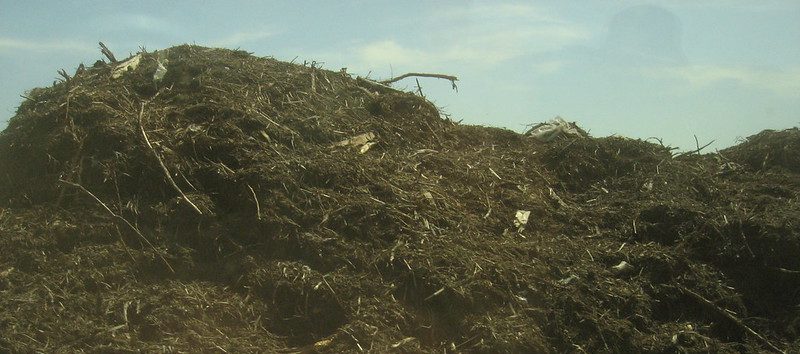Yesterday I posted an item about California’s effort to recycle food scraps. Now, here’s a post about food composting at the University of Wisconsin-Madison and the city of Madison. In sum: it’s very challenging.
Charlie Hildebrand and Riley Sumner write in Wisconsin Watch:
“Before it was ultimately forced to shut down, UW-Madison’s composting program went through a series of setbacks including contamination of its waste stream.
“At the West Madison Agricultural Research Station, the facility’s system churns and aerates organic waste in long rows to produce compost. But it struggled to process non-compostable materials—such as plastic bags, packaging and metal—in the food streams coming from the university, [Travis] Blomberg [of UW-Madison’s Office of Sustainability] said.
“The university attempted to ‘clean the stream’ of its food waste, recruiting students to conduct trash audits in campus cafeterias and training staff to sort food waste and run it through a pulper machine.
“Still, the waste from campus-caused problems—paper containers and napkins slowed down the system, and lightweight objects blew away. The agricultural station also had to make expensive repairs to tractor tires pierced by metal silverware tossed into compost bins.”
The city of Madison had similar problems, write Hildebrand and Sumner:
“The city previously attempted two curbside composting programs, but the efforts failed because it was too labor intensive — and the food scraps were often contaminated. Coat hangers, towels, children’s toys—and even a deer head—were among the items that caused contamination, Johnson said.
“But Madison is giving food scraps recycling another go. . . .”
There’s much more to this interesting story. But it’s not encouraging.
Image of compost is by meaduva is licensed under CC BY-ND 2.0.

